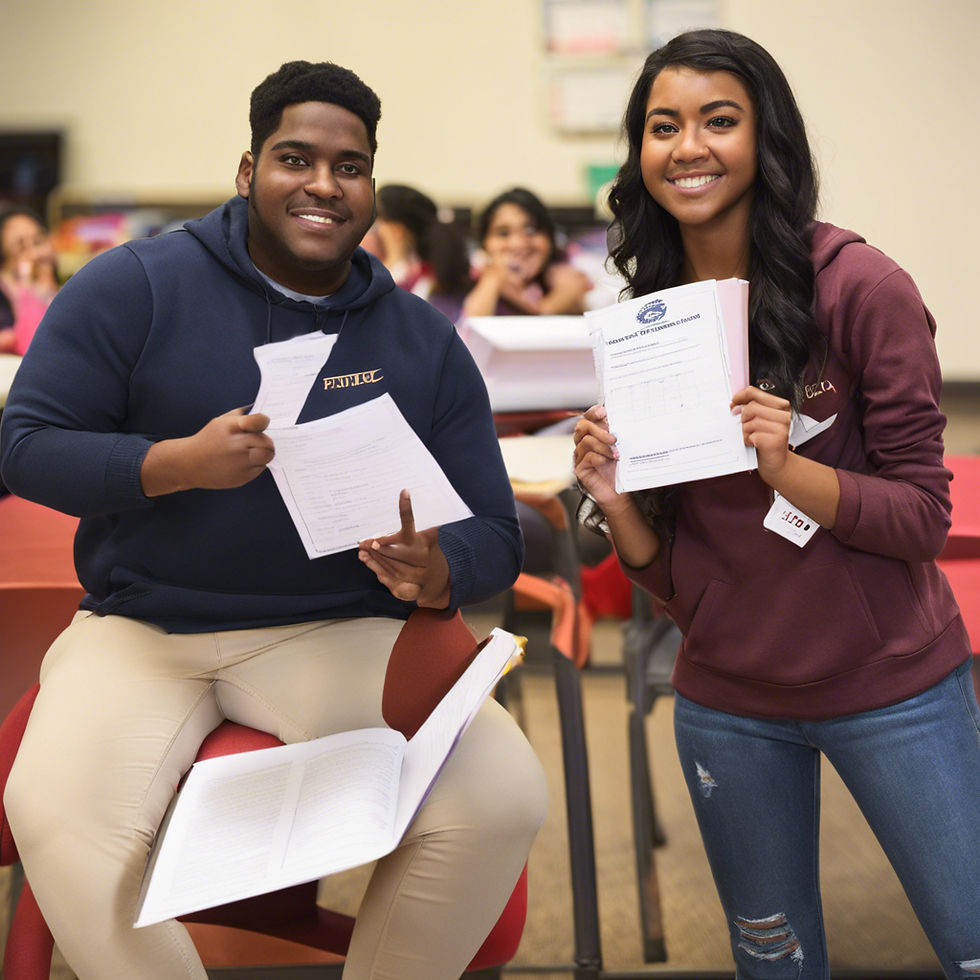What College Admissions Really Look For: A Comprehensive Guide for High School Students
- tmdsolaroutreach
- Aug 2, 2024
- 3 min read

Navigating the college admissions process can often feel like deciphering a secret code. With countless rumors and varying advice, it’s easy to get overwhelmed. Most colleges adopt a holistic approach when reading applications. This means the admission officers consider the whole applicant and versus just their academic profile. This includes considering a candidate's extracurricular activities, personal and college specific essays, letters of recommendations and interviews.
1. Academic Excellence
First and foremost, even within a holistic framework, academic achievement is a critical piece of the college admissions process. Colleges want to see that students will be academically capable and prepared for their programs.
Good grades are crucial as they reflect a student's commitment to their studies and ability to succeed academically. Admissions officers pay close attention to the rigor of a student's course load. Taking advanced courses, such as Advanced Placement (AP), International Baccalaureate (IB), or honors classes, demonstrates a student's willingness to challenge themselves. It's not just about getting straight A's; it's also about taking courses that prepare students for the demands of collegeThis typically means:
GPA and Class Rank: Your GPA is a reflection of a student's commitment to their studies and their overall academic performance. High-ranking students who excel in challenging coursework are often favored.
Rigorous Coursework: Taking advanced classes like AP, IB, or honors shows a student's willingness to challenge themselves and their ability to handle college-level work.
2. Standardized Test Scores
While some colleges are test-optional, standardized test scores can still play a significant role:
SAT/ACT Scores: These scores can provide a benchmark of academic abilities and readiness for college-level work, and provides a standardized way to compare students from different schools both domestically and globally.
The following websites provide registration college planning guidelines
3. Extracurricular Activities
Aside from the academic profile of a student, colleges want to ascertain the quality and character traits of students to determine if they will thrive on their campus. They look for:
Commitment and Leadership: Depth and commitment in extracurricular activities, whether it’s sports, clubs, or community service, are important. Leadership roles and long-term involvement can make a strong impression.
Passion and Interests: Activities should reflect genuine interests and passions. Authenticity can set students apart from other applicants.
4. Personal Statement or Essays
The personal statement or college essays are a chance for students to demonstrate who they are beyond grades and test scores:
Unique Perspective: Share your personal story, challenges you’ve overcome, or what motivates you. Admissions officers are interested in your character, values, and what you’ll bring to their campus community.
Writing Skills: Well-written essays demonstrate your ability to communicate effectively, an essential skill for college success.
5. Letters of Recommendation
Strong recommendations from teachers, mentors, or employers can provide insight into your character and work ethic:
Quality Over Quantity: One or two strong, personalized recommendations are better than several generic ones. Choose recommenders who know you well and can speak to your strengths and achievements.
6. Fit and Interest
Colleges are looking for students who are a good fit for their institution:
Demonstrated Interest: Showing that you’re genuinely interested in their school through campus visits (virtually or in-person), interviews, applying early and writing strong and genuine supplemental essays.
Alignment with Values and Programs: Highlight how your interests and goals align with what the college offers. This demonstrates that you’ve researched and are enthusiastic about their unique opportunities.
7. Diversity and Unique Contributions
Colleges value diversity and the unique contributions each student brings:
Cultural and Socioeconomic Background: Your background and experiences contribute to the diversity of the student body.
Unique Talents and Perspectives: Whether it’s a special skill, an unusual hobby, or a unique perspective, these aspects can add to the richness of the campus community.
Final Thoughts
While every college has its own specific criteria and preferences, focusing on these key areas can help strengthen your application. Remember, the admissions process is holistic and considers the full picture of a student as an individual. Students need to stay true to themselves, showcase their strengths, and not be afraid to let their unique personality traits shine through their applications.
Ready to get started on your college journey?
Schedule a Consultation: Contact us to schedule a 30 minute informational zoom call to discuss how we can help you craft a standout application.





Comments